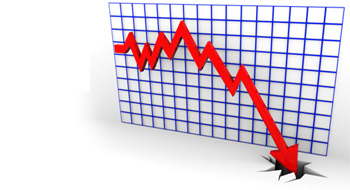
Low investment returns loom in the decades ahead. That means bad news for pension plan managers and those saving for retirement, according to a C.D. Howe Institute report.
The report, Long-Term Returns: A Reality Check for Pension Funds and Retirement Savers, challenges widely used “optimistic” assumptions for investment returns based on historic experience, with ones using current Canadian data.
“Some pensions could face bigger pension liabilities, and individual savers will have to save more or work longer if they are to avoid a large drop in their post-retirement lifestyles,” explains Richard Guay, co-author of the report and a professor of finance at L’Université du Québec à Montréal.
Plan administrators should avoid using historical returns to forecast future returns, says the report.
“The history of stock and bond markets is punctuated with extreme situations—such as the recent global financial crisis—that make drawing on the outcome of these events inappropriate as a predictor of future performance.”
Instead, the report based its forecast on current and prospective market information. It predicts long-term returns in the neighbourhood of 2.5% (0.5% real) on long-term bonds and of 6.9% (4.8% real) on stocks.
For a balanced portfolio (50% equity, 50% fixed income), the report expects a real return of 2.7% for the next decade. By contrast, the average expectation for real returns among Canadian pension funds is 4.3%.
“DB pension plans should acknowledge these realities,” says co-author Laurence Allaire Jean. “Adjustment might be required, which will be difficult, to reduce costs and deficits to acceptable levels.”
The report also shows how lower returns will affect individual savers who have different incomes and income replacement targets.
For example, for a saver to reach the popular target of 70% income replacement based on a final salary of $50,000, the necessary savings rate—over 30 years—jumps from less than 10% of gross annual salary to 14%. Or, savers can work longer.
“More realistic return assumptions,” says Guay, “mean individuals should save more for their retirement or postpone retirement for two years to enjoy their desired lifestyles.”
Related articles:
